A hopeful poll, hot dog memes, and America's weird economy
What I read this week
My typical writing process goes something like this: I sit down to write a quick 200 word newsletter. Then I go down a rabbit hole, get lost in research for anywhere from one to four weeks, come back up, and write a 2,000 word story with original charts and graphics.
But as a reader of many things on the internet myself, I don’t always want to read a 2,000 word story. In this way, I guess I’m sort of like my 3 year old son, who often comes up to me on the couch when I’m reading and asks, “Why are you reading boring stuff with a lot of words?”
Sometimes I just want to scroll some good charts, quick takes, and maybe a good meme or two—my equivalent of a book filled with images of trucks and trains.
I suspect many of you feel the same way. So I’m going to try to start publishing more short posts in between my longer stories.
With that, here’s today’s newsletter. As always, I’d love your feedback in the comments or in reply to this email.
Nobody wants this
Trump has done a lot of awful things this year. But the good news is that most Americans don’t like what they are seeing.
Trump is less popular now than he was by this time in his first term, as this chart from The Economists’ Owen Winter shows.
Young Americans are even less happy with Trump. After the 2024 election there was a lot of talk about young Americans shifting to the right. A year later, Trump’s net approval rating among young people is -40% and falling, according to The Economist’s polling.
Democrats still don’t know who to blame
For the last year, Democrats have been trying to figure out why they lost the 2024 election. One of the most common arguments that I’ve heard is that Democrats failed to communicate their policy achievements.
This week, The New Yorker published an interview with Biden’s former press secretary Karine Jean-Pierre. Few people had more power to communicate the adminstration’s accomplishments than Jean-Pierre. When asked why the Democratic Party lost, she said it was because it “couldn’t articulate the achievements of the Biden/Harris administration well enough.”
Jean-Pierre still thinks Biden could have won. When asked about the disastrous debate, she says, people were too mean to Biden.
One year after the 2024 election, some top Democrats are still running around like the guy in this meme:
Changing opinions on climate
One thing that’s been on my mind this year is how public interest in climate change appears to be waning. The data seems to back that up.
This week, Grist published a chart showing a sharp decline in news searches for the term “climate change.”
Look at polling data and you’ll see a similar trend. In 2021, 16% of American voters ranked climate as one of their top issues. Today just 5% do.
America’s CEOs are talking about climate change less than they used to, according to Bloomberg’s analysis of corporate earnings transcripts.
America’s economy is weird right now
For years now, people have been predicting a recession in the US. And for years, they’ve been wrong.
In 2022, Bloomberg published a story suggesting there was a 100% chance of recession within a year. Instead America’s economy grew faster than basically any other country’s.
Earlier this year, Trump raised the effective tariff rate to the highest level since the Great Depression. Again, everyone said America was heading for a recession. Again, everyone was wrong (at least for now).
Kyla Scanlon coined the term “vibecession” to describe the gap between macroeconomic measures that economists love to look at and people’s vibes of the economy. This week she published this chart on her newsletter showing that many states are in or near a recession.
Adam Tooze posted a similar chart on his newsletter showing that 80% of the population lives in a place that isn’t experiencing an economic expansion.
Even tech workers are in something of a recession, despite the fact that tech companies’ revenue and valuations have soared in recent years. As Joseph Politano writes:
Yet amidst the AI boom, the US continues bleeding tech jobs—tech employment is down 90k from its 2023 peak and has declined by more than 10k over the last year.


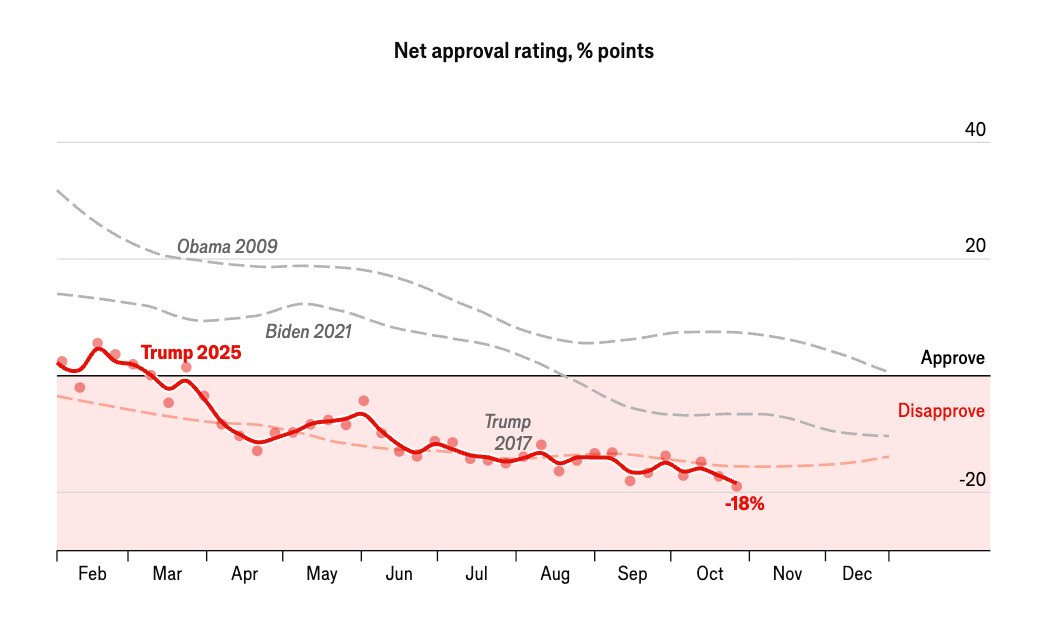
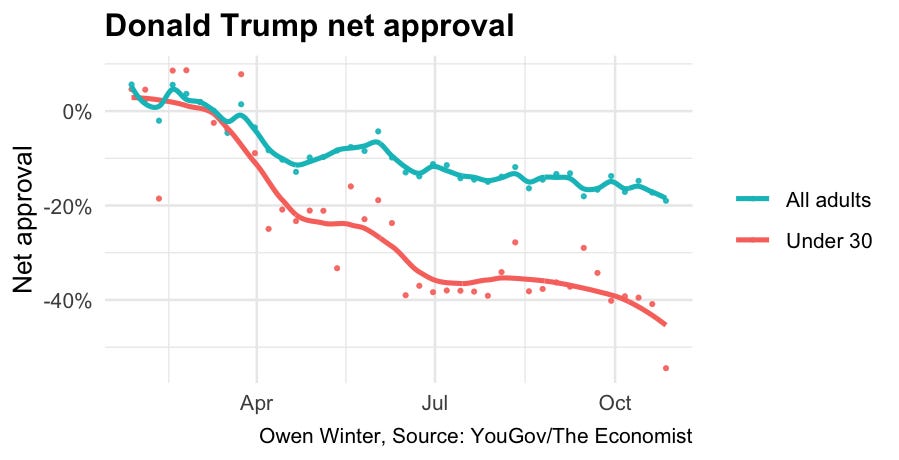

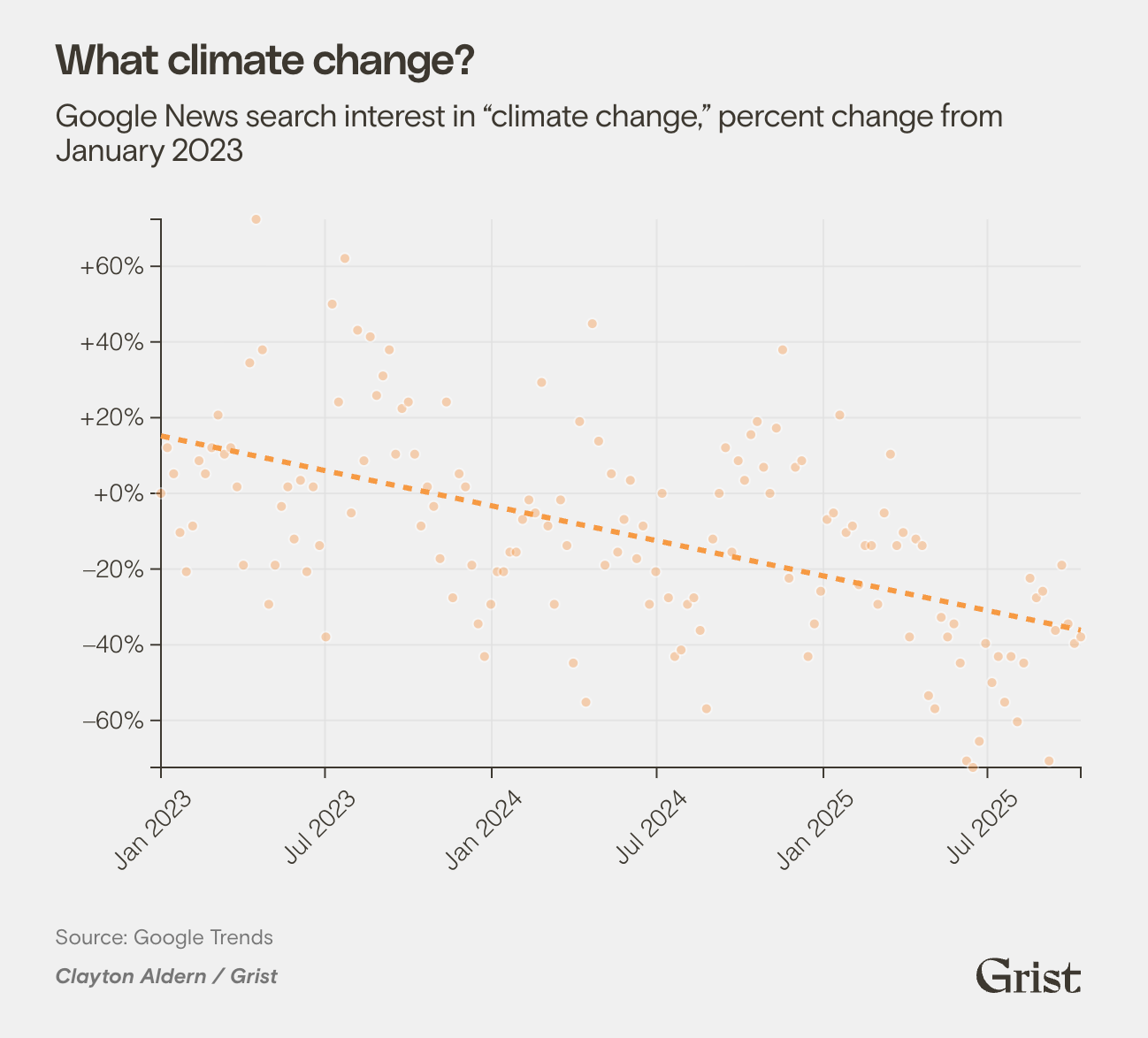
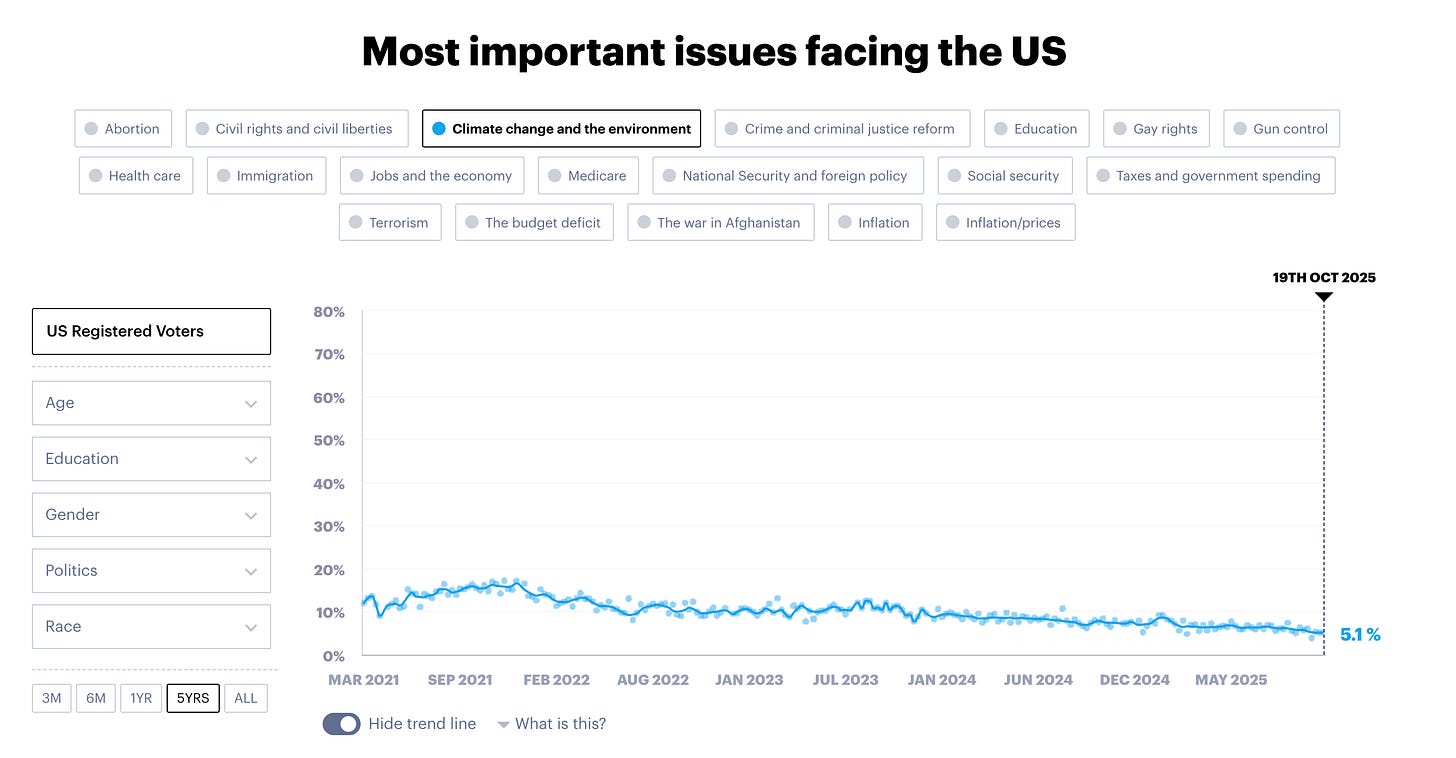
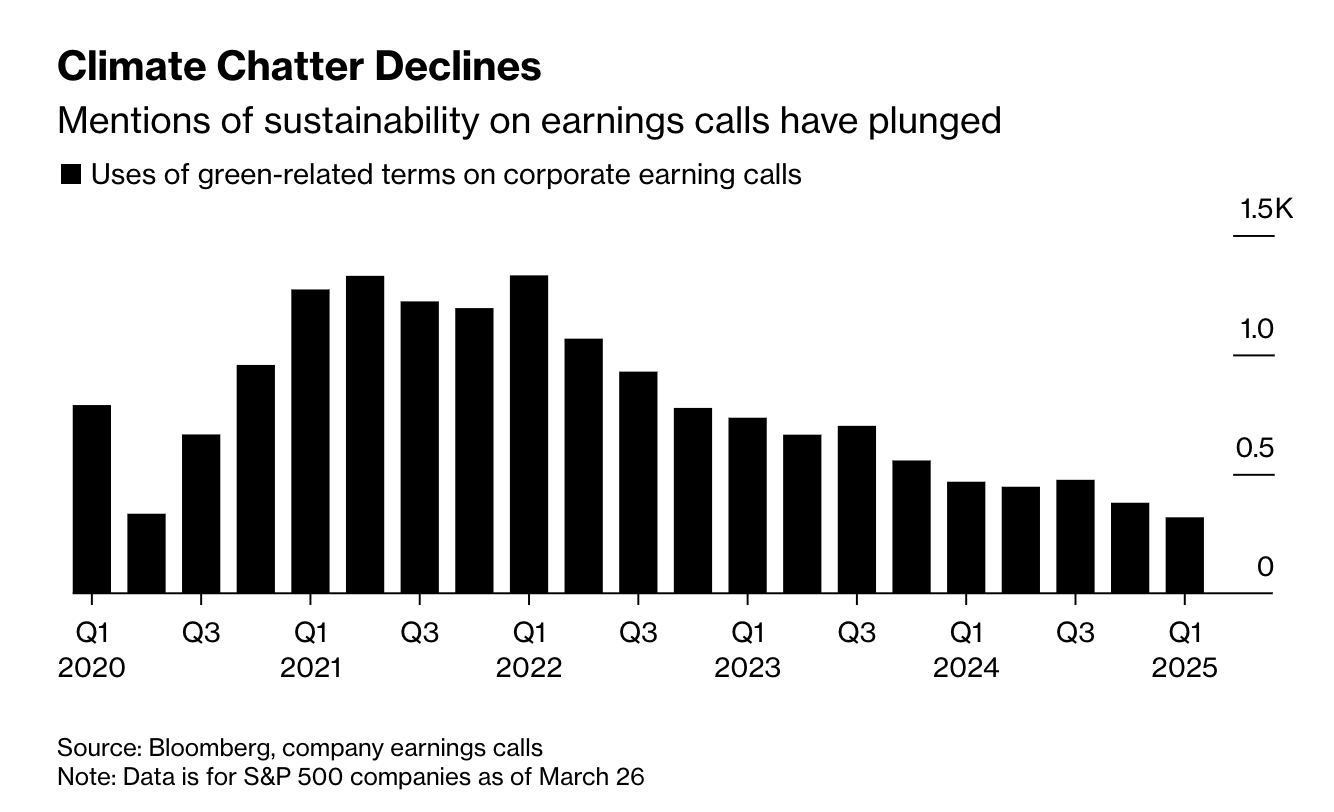

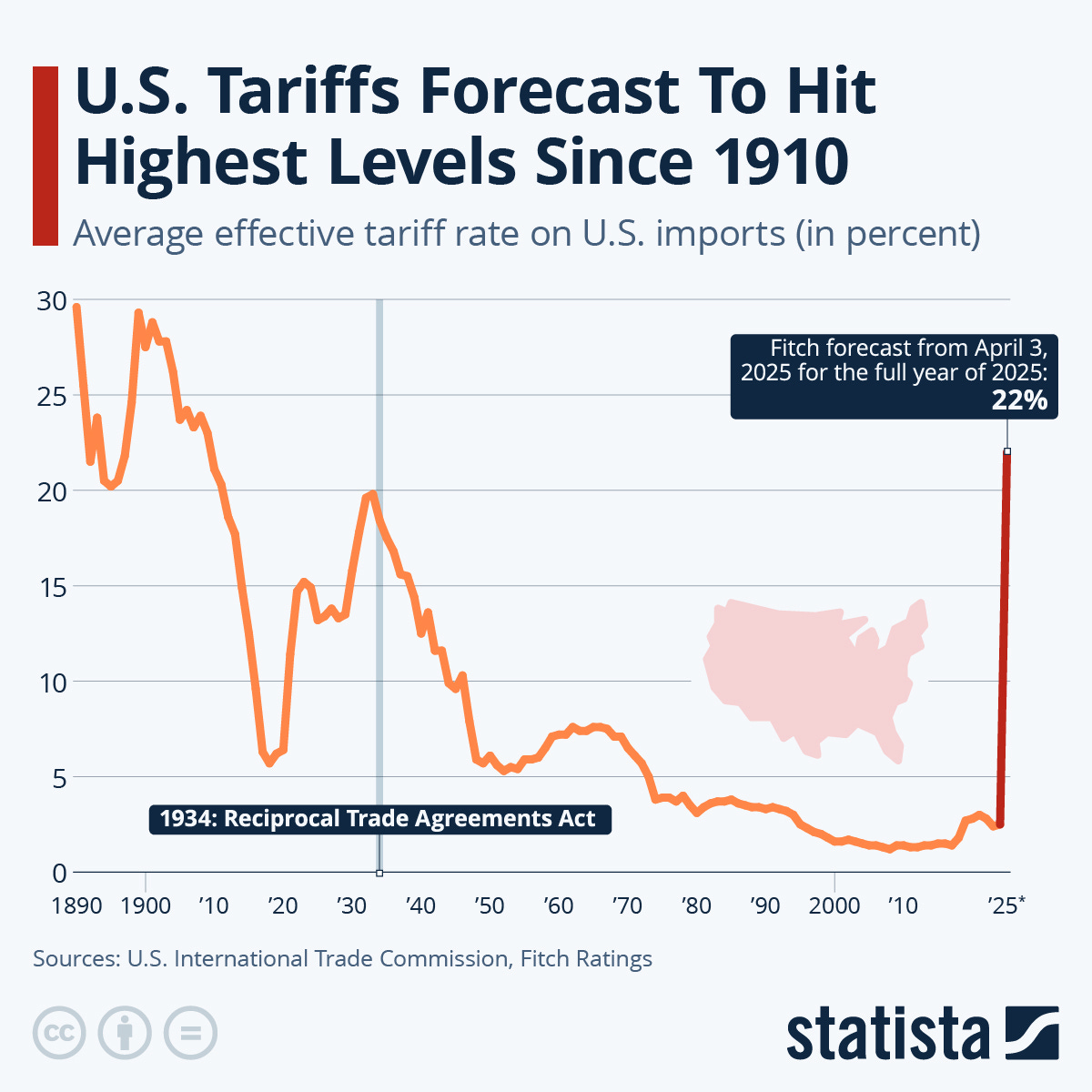
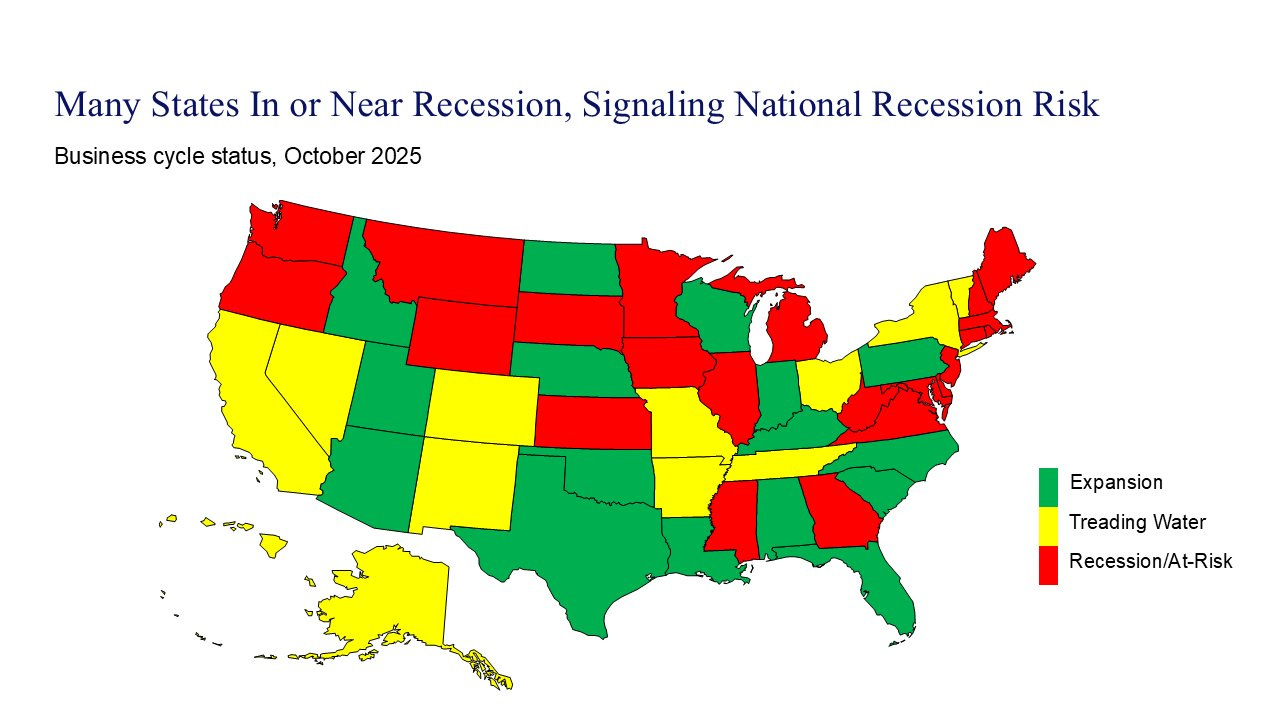
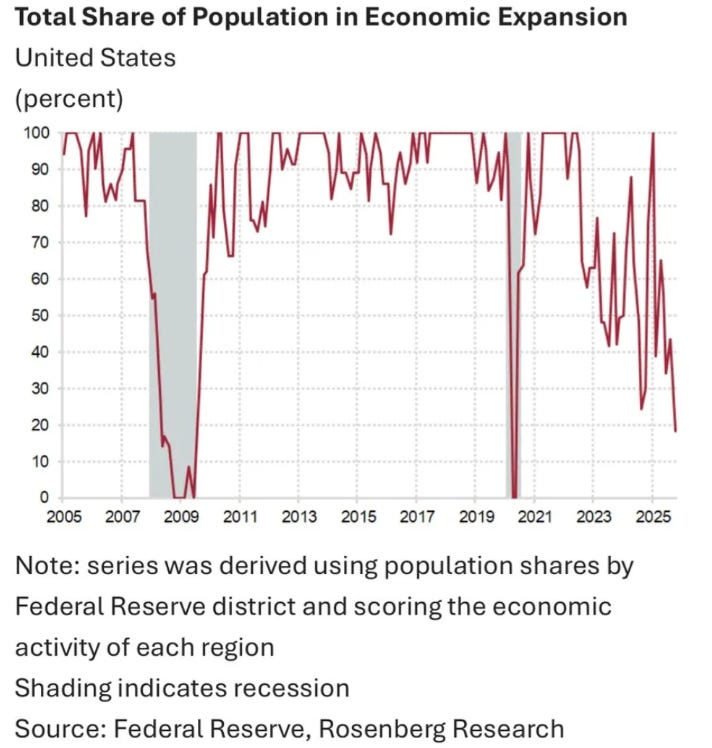
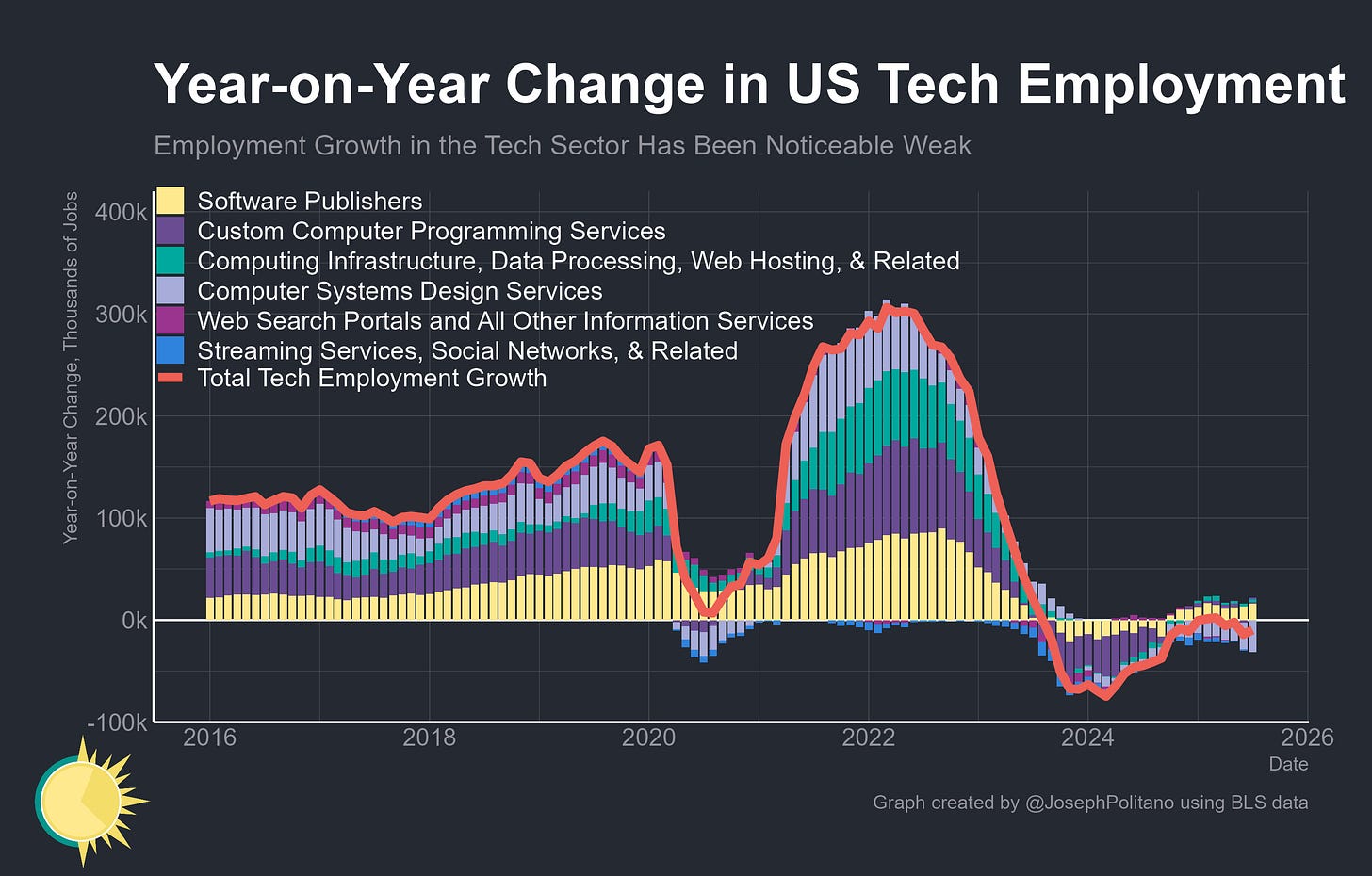
Michael, your sincerity and research are appreciated. I believe it may help reduce some future suffering. But I keep returning to the multi-pronged ecocide we have created and barely begun to face. Climate change is a poster child of these, and of course was belated in gaining awareness, but it is hardly a singular crisis.
Is it not true that it (Climate Change) is but one of several crisi beyond the tipping point (which I frame as “no possible return to what we have enjoyed for thousands of years” within a human-scale time frame? It’s my understanding that each of the others (topsoil loss, acidification of the oceans, fresh-water & air corrupted by contaminants, vast species extinctions and biodiversity loss, desertification and forest loss, nano-plastic and chemical pollutants in all living things throughout the globe—now seen as causing infertility among all animal (including humans) life forms), that each of these is capable of a cascading domino-effect on the others.
So that even the idealist notion of a magical new source of available “clean” energy in any form (IE a breakthrough in fission) will not alter the roots of all these problems (our attitude as superior to other life and fallacies like “endless economic growth”) and only continue modern industrial civilization along the same path: the steady Overshoot of resources. Whether we tie it to capitalism, consumerism, or any contemporary form of governance, the issues we have generated via modern society do not stem solely from the energy sourced, but from our relationship to life.
It seems to me the misguided falsehood that we are separate from other life forms (and indeed even from one another) has our type of civilization (which has infected the globe) trapped within an entrenched unsustainable (and fatal) relationship.
When I pull together input from biologists assessing circumstances in several directions (regrettably siloed into their respective territories of expertise—which is a small part of our predicament, and a big part of our lack of awareness and attention to the issues) the overview is not hopeful.
Hence, and I write this as one who has young people in my life, it seems a clear-eyed acceptance of our self-induced ecocide must be a starting point. Only aiming toward simplification offers any realistic potential for some percentage of humans to survive. I suspect the earth will carry on and “heal” or adjust, and perhaps in thousands of years (or millions), will again have some of the variety and abundance we humans enjoyed.
Maybe humans not being around will be a good thing. But more and more it seems time we face the music regarding the scale and ticking clock of our inescapable path, and begin to integrate the concept of simplification in all we do.
Are you familiar with Nate Hagens or the Honest Sorcerer (both on Substack), both of whom have done due diligence in studying fossil fuels, modern society, and our inescapable decline coming due to our dependency on it?
Ha ha that happens to me too